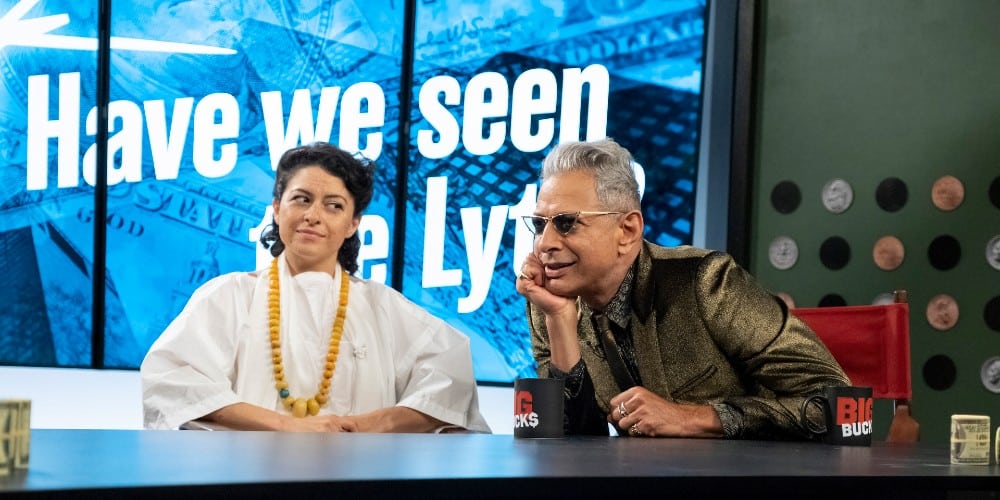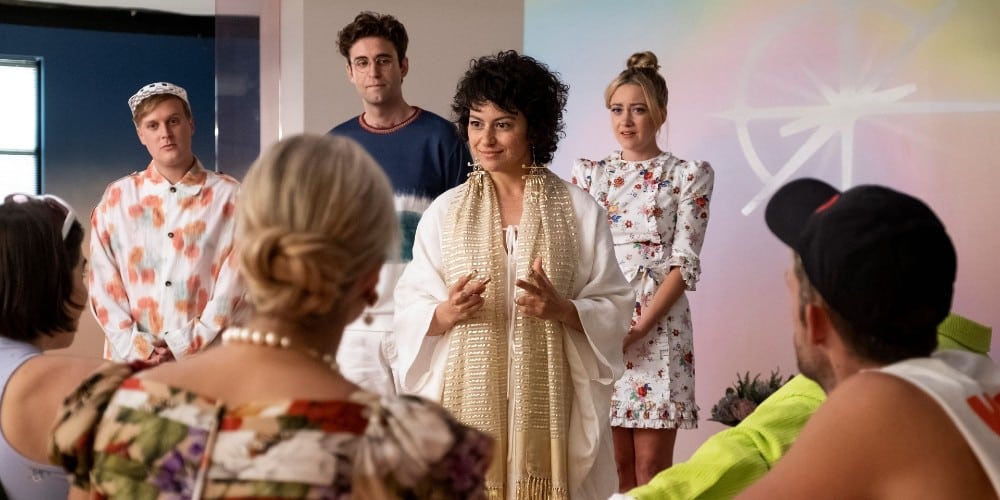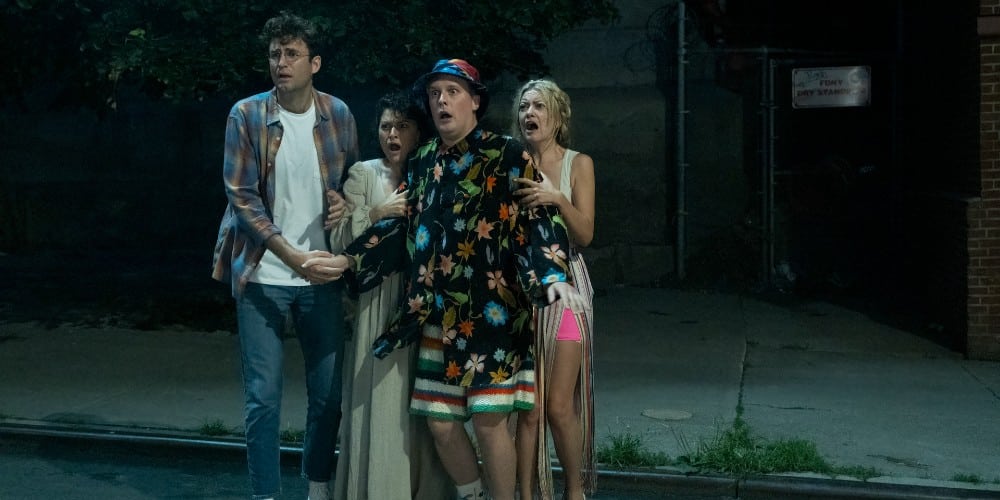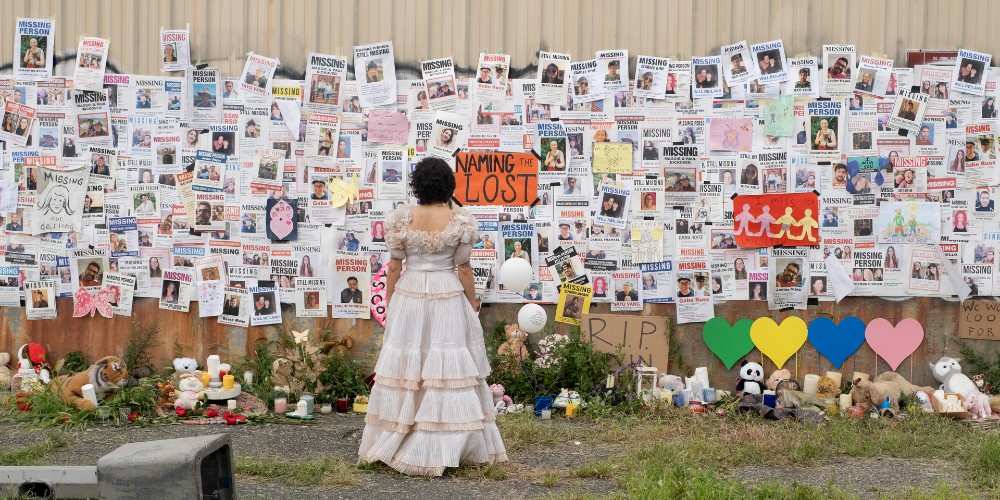Read also:
How to Watch FX Live Without CableHow To Watch AMC Without CableHow to Watch ABC Without CableHow to Watch Paramount Network Without CableCharles Rogers and Sarah-Violet Bliss look back at their genre-hopping chronicle of millennial life and the journey of the anti-heroine they built with Alia Shawkat.
The fourth season of Search Party — the TBS-turned-HBO Max satirical dark comedy — was initially planned to be the show’s last outing, with Dory’s (Alia Shawkat) death bookending its saga of self-obsessed New York millennials. But once production was underway, co-creators Charles Rogers and Sarah-Violet Bliss realized that they had one last story to tell.
Search Party’s fifth and final season picks up immediately after season four’s close—with Dory emerging from a near-death experience after being kidnapped by a superfan. Season five sees Dory aiming to enlighten the world. So, accompanied by her equally narcissistic friends, Dory joins forces with a tech mogul named Tunnel Quinn (Jeff Goldblum) to deliver that enlightenment in pill form. This backfires. And it backfires spectacularly—rather than mass transcendence, Dory and company kickstart the end of the world.
Search Party has played with its genre and the twists and turns of its story from day one, so it’s not really a surprise that Rogers and Bliss decided to end Search Party with an apocalypse—indeed, it’s a fitting end for the wildly inventive comedy. We recently had the pleasure of chatting with the duo to talk about Search Party’s final season, Dory’s last arc, and the relationship between altruism and narcissism.
This interview has been edited for length and clarity.

Congratulations on Search Party’s amazing six-year run! This final season was so entertaining and unexpected. At what point during the making of the show that you decided this season was going to be the last? Was it always the plan?
Charles Rogers: It was really hard to decide when and how the show should end. We actually thought about season four being the last for quite a while and that the show would end with Dory dying. But once we were in the production and closing in on that being the final decision, it felt like it wasn’t the ending that we actually wanted. There was something really interesting about using Dory’s death as a turning point rather than the show’s ending—it could say something about her being on the other side of the huge journey she’d had leading up to it.
So while we were shooting season four, we started coming up with different ideas for season five. We wanted to go out with a huge bang, a really explosive “hard to believe that we did it” kind of ending. And when we started writing season five, we toyed with the idea of a season six, but we didn’t really feel it in our hearts. [laughing] We knew deep down that season five was going to be the end.

The show has always been concerned with millennials’ narcissism and our search for identity, and this last season touches on tech, influencer culture, and even cults. While writing the script, did you decide to build the narrative around exploring those themes, or did they reveal themselves organically in the writing?
CR: We knew that we wanted the season to go really big, so we needed to justify how that would happen. In order for Dory to embark on her massive quest to enlighten the world, she was going to need help from someone who could make that happen. That alone made us realize that the season would need to be bigger in scope and that we’d need to draw on an archetypal Elon Musk figure—someone who’d made huge promises to the world. Social media was an integral part of that soup.
Throughout its run, Search Party has played with so many genres and narrative twists. But its primary tone remained constant. How did you ensure that?
Sarah-Violet Bliss: It actually wasn’t something we needed to consciously think about all the time. I feel like at the end of the day we always anchored everything to our story’s core, which was Dory’s journey of finding herself. She thinks she’s driven by A, but in reality, she’s driven by B, and each season showed a different side of the hows and whys there.
The throughline for Dory’s arc this season is the idea that narcissism and altruism are inextricably linked.
Dory is reborn as a new person this season—so much so that it’s her ultimate form as a character. But what remains fascinating and complicated about her is that she feels like she’s still waffling between altruistic and narcissistic behavior. Why is this duality is so interesting for you?
SVB: One of the most helpful parts of the cult storyline and Dory’s big aspiration to do something good—to make an impact on the world—was the opportunity to see her being truly selfless. But at the same time, she can still come off as narcissistic, because she thinks that humanity will not survive its crumbling world unless she intervenes. I think that’s a very powerful lens to examine how destructive we can be in our efforts to be helpful.
Creating that arc for Dory was very tricky because when we started writing, we wanted to be on board with her enlightenment. But at the same time, we thought that she had to make mistakes and that an element of her drive was rooted in her narcissistic belief that she needed to be the one who made the world change—like: “I’m gonna do this good thing and it’s for the greater purpose, but only I can institute it for everyone.”

Did you guys look to any certain someone while writing Dory’s storyline this season?
CR: There are a lot of influences for Dory this season. Marianne Williamson, Elon — [laughing] wait no, I mean Elizabeth Holmes. [Indian philosopher] Swami Rapmda and a lot of big spiritual thinkers were really influential in developing Dory’s new way of being this season.
The throughline for Dory’s arc this season is the idea that narcissism and altruism are inextricably linked. But even in the first season, her pursuit of Chantal has elements of performance in it. I think there’s a provocative question in whether or not you can do good while people watch and it’ll only be about doing good. So that basically is sort of the irony of all the seasons and our relationship to altruism.
The final shot of Search Party—where Dory stares at the missing person posters—mirrors the very first scene of the pilot. Why did you decide to wrap the show up by circling back to that moment?
CR: Dory’s stare really is the one constant throughout all of the show’s changes and evolutions[laughing]. In all five seasons, we’ve repeatedly returned to her looking directly into the camera. And each time Dory does so she’s a very different incarnation of herself. There’s something particularly special about her last look—like she’s seeing everything that she’s caused throughout her life in all these missing person posters [laughing].
But I think that there’s a little bit more weight, mood, and mystery to it this time. There’s an enigmatic aspect to it that encapsulates everything about Dory—all the different angles she’s made of Alia [Shawkat] tapped into a certain gravity that brings all that stuff out in that final moment.

Do you think Dory ever really found herself in the end?
CR: I don’t know if Dory ever found herself necessarily, but I think that she now has a level of awareness that we’ve never seen from her before. When she said, “I just wanted… I just wanted… I just wanted,” towards the end — I don’t think we’ve ever seen that kind of self-awareness from Dory before.
You had lived with Search Party for more than half a decade. Now that it’s done, what was your biggest takeaway from the experience of making the show?
CR: Making Search Party was completely in tandem with growing up. So it’s really hard to distill down what the one thing I learned was because making the show was my life for six years. It’s just kinda overwhelming and almost impossible to process [laughing]. But I’m extremely grateful.
All five seasons of Search Party are now streaming on HBO Max.